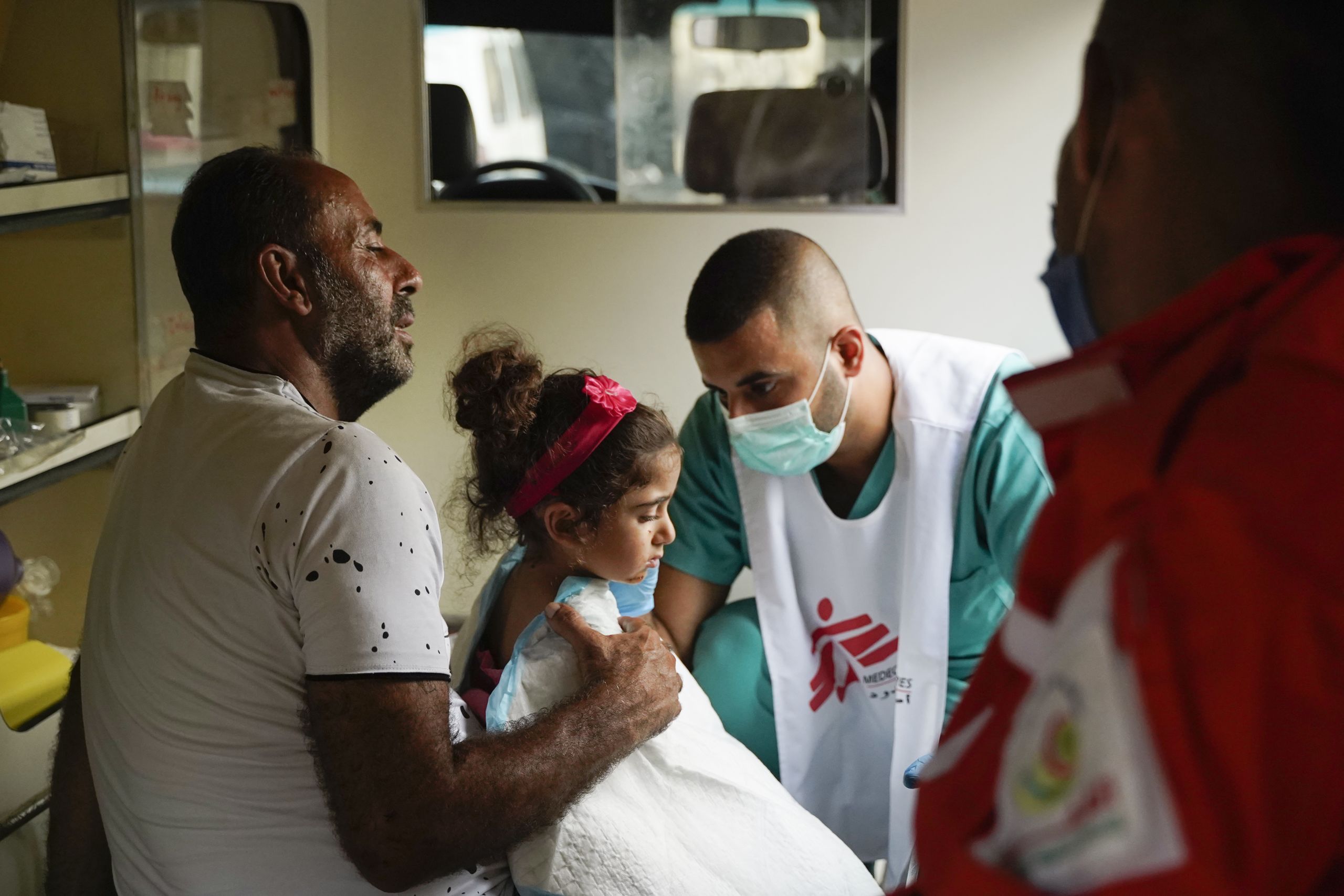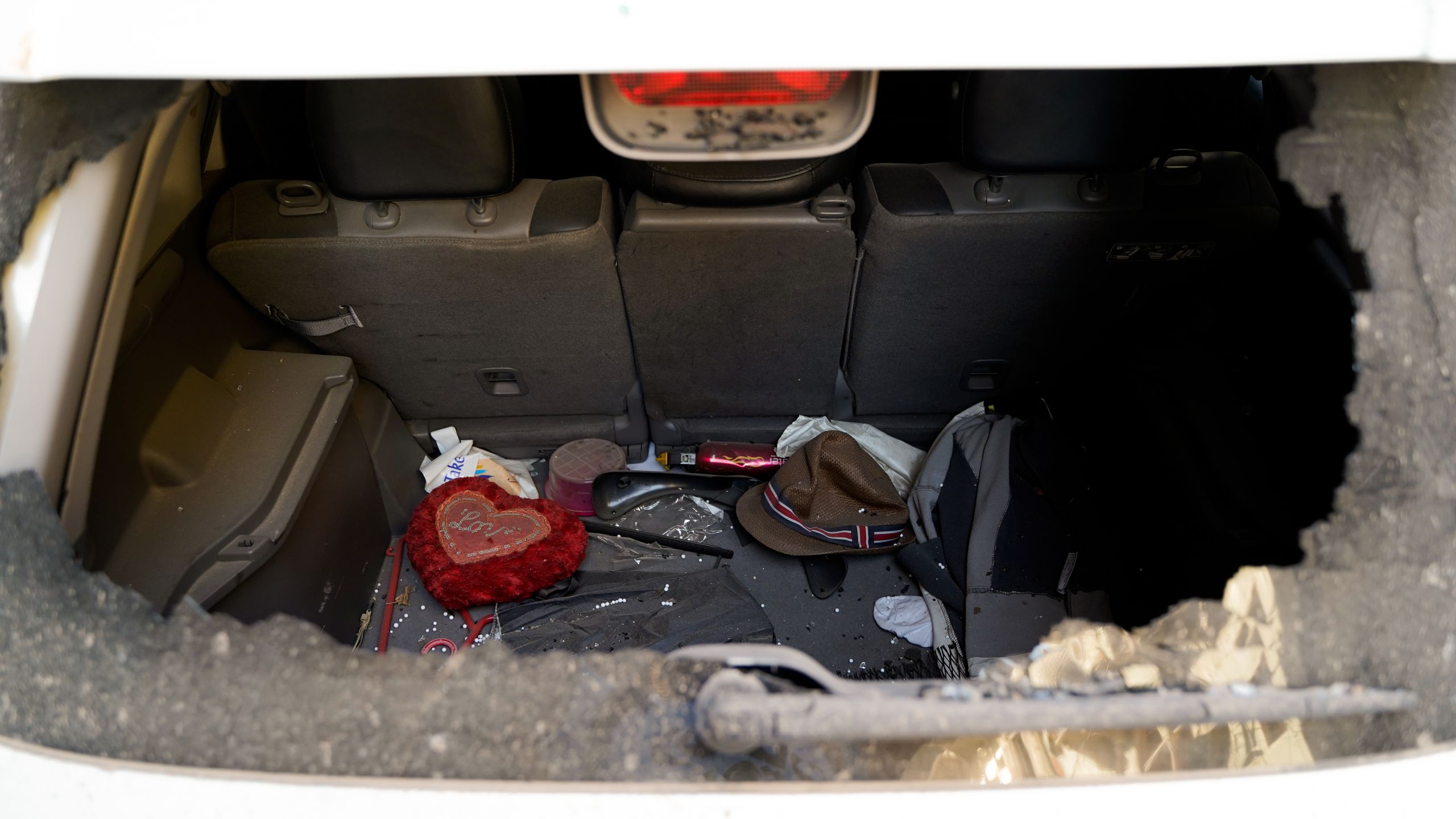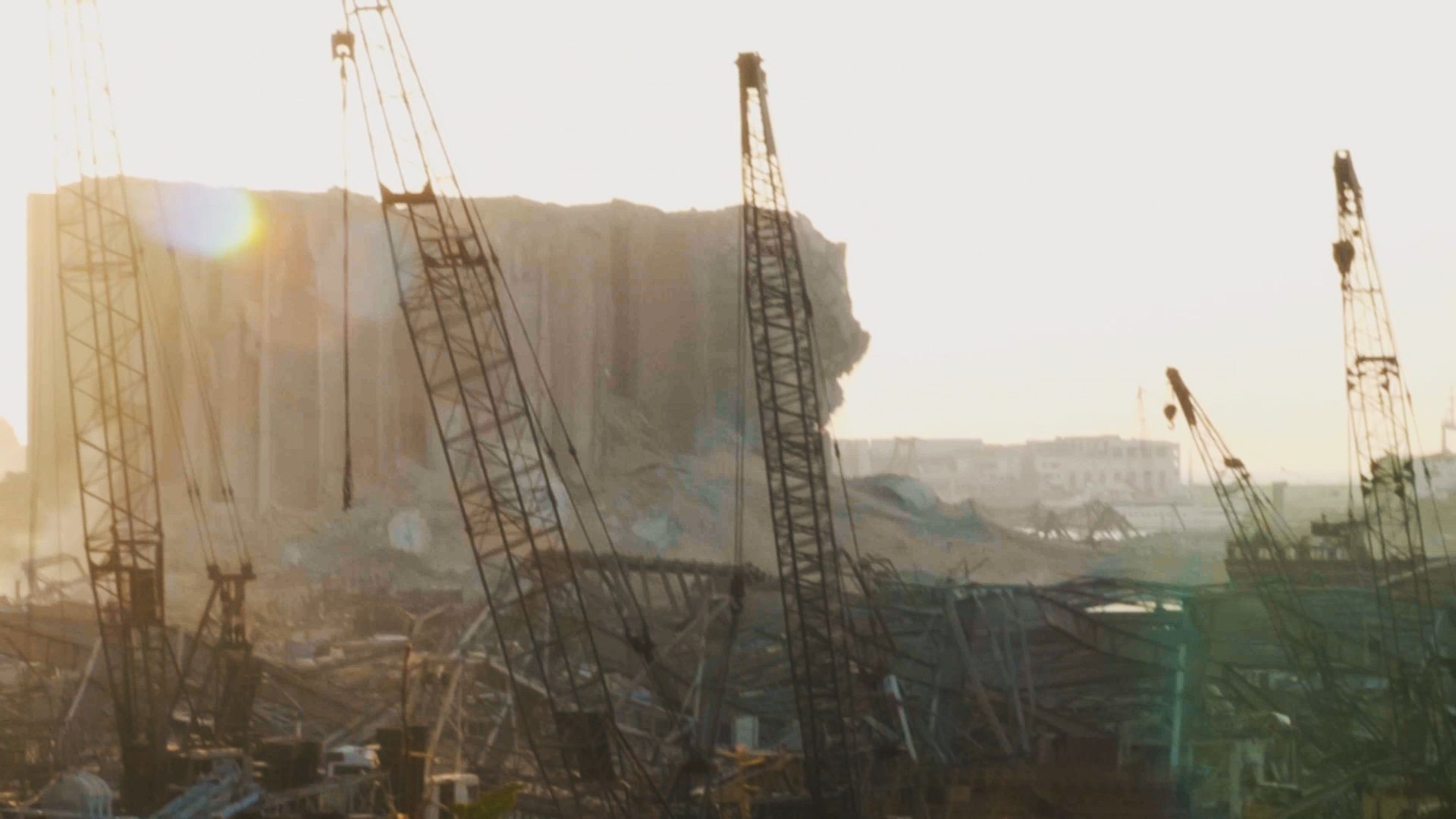MSF response to Beirut explosion

On 4th August 2020, a powerful blast ripped through the port warehouses near central Beirut in Lebanon, after highly explosive material that was being stored there ignited. More than a hundred people were killed and nearly 5,000 thousand were injured. Two days later the death toll is still growing as more bodies are found under the rubble.
The blast generated seismic shockwaves that shook the ground, shattered windows and smashed buildings across the Lebanese capital. It was the most powerful explosion in years in Beirut, a city already reeling from economic crisis and a surge in COVID-19 infections.

In the hours following the explosion, according to the Minister of Health, thousands of injured people poured into those hospitals that were still functioning. Most where quickly overwhelmed with the flow of patients and started to run low on supplies.
Other health structures closer to the port had been completely destroyed, and several others were so severely damaged that they had to close and transfer all patients elsewhere.
The treatment of severe and critical cases – such as head injuries and chest injuries – was prioritized by hospitals and ambulance services on the first night. Since then, thousands of other patients have been treated for less severe injuries such as cuts caused by glass from shattered windows.



Apartments, shops and thousands of cars in Beirut were damaged. Beirut's streets were covered with debris and broken glass.


Shocked Beirut residents observe the damage in the aftermath of the explosion


Damaged cars in Beirut, glass shattered and metal crumpled from the blast


Shattered windows of a residential home

It was the most powerful explosion in years in Beirut, which is already reeling from an economic crisis and a surge in coronavirus infections.

Immediately after the explosion, Médecins Sans Frontières health workers volunteered at public and private hospitals across Beirut. The MSF team proactively organised the donation of first aid kits to support the Lebanese Civil Defense on the same night.

"The situation in Beirut is completely catastrophic. People are still missing, and search and rescue operations are still ongoing, looking for people that are still trapped in the rumble of their homes"
MSF RESPONSE

The team is working on a donation of more medical supplies to relevant actors as well as N95 masks and surgical masks, and plan further donations of medical materials and drugs to different actors and Lebanese Ministry of Heath. MSF is currently assessing the needs of public and private hospitals to provide the required medical and logistic support that they might need to overcome this crisis.
"Hospitals in Beirut are still completely overwhelmed, not being able to cope with the thousand of wounded that have come in the hospitals in the last twelve hours," said Emmanuel Massart, Coordinator of MSF Operations in Lebanon.

Ali is a nurse who had joined MSF's COVID-19 response team. After the explosion happened, Ali was among those mobilized to join the emergency response team. MSF has established a fixed point in the Mar Mikhael and Karantina neighborhoods in Beirut, two of the areas most impacted by the blast
Ali is a nurse who had joined MSF's COVID-19 response team. After the explosion happened, Ali was among those mobilized to join the emergency response team. MSF has established a fixed point in the Mar Mikhael and Karantina neighborhoods in Beirut, two of the areas most impacted by the blast
Meanwhile, MSF hospital in Bar Elias is ready to provide medical support for all injured people who have conducted surgeries. The hospital is ready and equipped to welcome cases who have received immediate primary surgery for trauma but are in need further surgical intervention.

In parallel, our teams are assessing the need to provide support to vulnerable people who lost their shelter and people in need of mental health care. Our mental health teams in coordination with the National Program for Mental Health by the Ministry of Health will join efforts to provide psychological help for those in need.

MSF is providing wound and burn care treatment as well as door-to-door visits for NCD patients in Mar Mkhayel and Karantina areas in Beirut, at the epicenter of the explosion
MSF is providing wound and burn care treatment as well as door-to-door visits for NCD patients in Mar Mkhayel and Karantina areas in Beirut, at the epicenter of the explosion

MSF is providing wound and burn care treatment as well as door-to-door visits for NCD patients in Mar Mkhayel and Karantina areas in Beirut, at the epicenter of the explosion
MSF is providing wound and burn care treatment as well as door-to-door visits for NCD patients in Mar Mkhayel and Karantina areas in Beirut, at the epicenter of the explosion
A nurse and an epidemiologist from MSF, Sara and Krystel, are preparing medications for patients suffering from non-communicable diseases (NCD). A little bit earlier, MSF team carried out door-to-door activities in the neighborhoods of Gemmayzeh and Mar Mikhael, the area affected most by the explosion. An important number of the inhabitants surveyed were elderly people, who needed treatment for these health conditions

Samar (3 YO) is carried by her uncle Khalil as her father was receiving wound care treatment.

Samar (3 YO) came with her father to the MSF medical point to receive wound care, both had several injuries due to the explosion

Samar was going with her father out of the building as the explosion happened, the steal gate caused her facial injuries and burns. She already had reconstructive plastic surgery.

Hamza (4 YO) receiving wound care treatment in the MSF medical point in Karantina, Beirut




